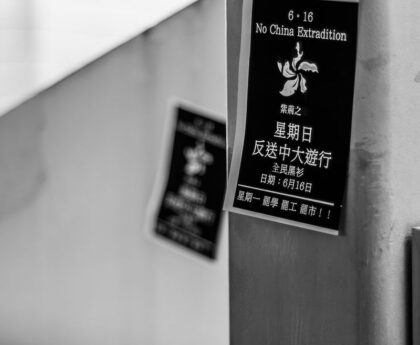Welcoming Spaces in Bristol to Continue Operating During Continued Cost of Living Crisis
Introduction
The cost of living crisis in Bristol has prompted the city council to announce that welcoming spaces, which were initially opened last October, will remain in operation throughout the coming winter. These spaces were established to offer support to individuals struggling with rising heating bills and inflation. Given that the crisis shows no signs of abating, more than half of the welcoming spaces are expected to continue operating until at least March of next year.
Background
The concept of welcoming spaces was introduced by Bristol City Council as a means to aid those who were financially burdened by escalating heating costs and inflation. These spaces were set up across different locations within the city, such as churches and community centers. The initial launch of the program was made possible by a private donor who generously contributed over £100,000.
Survey Results
According to the council’s survey conducted in March, the demand for support from these welcoming spaces is projected to persist. Penny Germon, the head of service for neighborhoods and communities, shared the findings: “Their feedback was that 62% intend to keep going, 25% need funding to continue, and 13% will not be able to continue for various reasons.” The survey also highlighted that difficult times have not abated for many individuals, making it imperative to shift focus from crisis intervention to sustainable solutions for poverty.
Editorial Perspective
The decision by Bristol City Council to continue operating the welcoming spaces is indicative of both the severity and longevity of the current cost of living crisis. The fact that more than half of these spaces will remain open underscores the ongoing struggle faced by individuals in meeting basic needs. It is a clear reflection of the inadequacy of current systems and policies in addressing poverty and socio-economic disparities.
While the provision of welcoming spaces offers temporary respite for those affected, it is imperative that focus be shifted towards finding long-term solutions. The persistent nature of the crisis necessitates a comprehensive and sustainable strategy to alleviate poverty. Bristol City Council must work collaboratively with relevant stakeholders to identify and implement effective measures that address the root causes of the cost of living crisis.
Philosophical Discussion: Poverty and the Responsibility of the State
The existence of a cost of living crisis raises broader questions about the responsibility of the state and society in addressing poverty. It prompts us to examine the fundamental principles that underpin the social contract between citizens and the government. Should the state have a moral obligation to ensure that its citizens can afford basic necessities? Or should individuals be solely responsible for their financial well-being?
The cost of living crisis in Bristol highlights the vulnerability of individuals who are disproportionately affected by rising costs and limited resources. It challenges the notion that poverty is solely a personal failing and emphasizes the structural factors that contribute to these disparities. This crisis necessitates a reevaluation of society’s values and priorities, particularly in terms of economic policies and social safety nets.
Advice for Individuals Affected by the Cost of Living Crisis
For individuals struggling with the cost of living crisis, it is essential to seek support from available resources and organizations. The welcoming spaces in Bristol provide a temporary but valuable refuge to those experiencing financial hardship. Additionally, individuals can explore avenues for financial assistance, such as government aid programs, welfare support, and community initiatives.
It is crucial for affected individuals to engage with their local representatives and advocate for policies that address the root causes of the cost of living crisis. By participating in civic activities and raising awareness about their experiences, individuals can contribute to shaping effective solutions that bring about sustainable change.
Lastly, it is essential to foster a sense of community and solidarity within neighborhoods. By supporting one another and engaging in mutual aid, individuals can navigate challenging times with increased resilience and support.
In conclusion, the decision to continue operating welcoming spaces in Bristol reflects the ongoing severity of the cost of living crisis. While these spaces offer temporary relief, long-term solutions are necessary to address the persistence of poverty. Society must confront the root causes of this crisis and reassess its commitment to societal well-being and equitable distribution of resources.

<< photo by Ron Lach >>
The image is for illustrative purposes only and does not depict the actual situation.
You might want to read !
- Ryan Giggs: A Respite from Domestic Abuse Allegations
- “Unveiling the Unexpected: Dev Griffin’s Startling Family Revelation”
- BBC Breakfast presenter Jon Kay to go on hiatus from morning show, sparking speculation about potential future changes
- Gigi Hadid Takes a Stand: Speaking Out Against Cannabis Arrest
- The True Toll: Examining the Latest Impacts of the Cost-of-Living Crisis
- Controversy Surrounding Bibby Stockholm Barge Intensifies as it Reaches Portland, Sparking Protests
- Margot Robbie’s Barbie Transformation: From Day to Night in Seoul
- The Unsolved P.S.G. Attack: Shattering World Cup Dreams of Two Women
- Tom Cruise: Embracing the Mystique of Aviators, Day and Night
- The Future of the Commonwealth Games: Uncertainty looms as Victoria pulls out
- Al-Nassr Attempts Aston Villa Hijack: The Battle for Moussa Diaby’s Signature
- Eminem’s Epic Surprise: Ed Sheeran’s Fans Erupt as Rap Icon Joins Him Onstage




